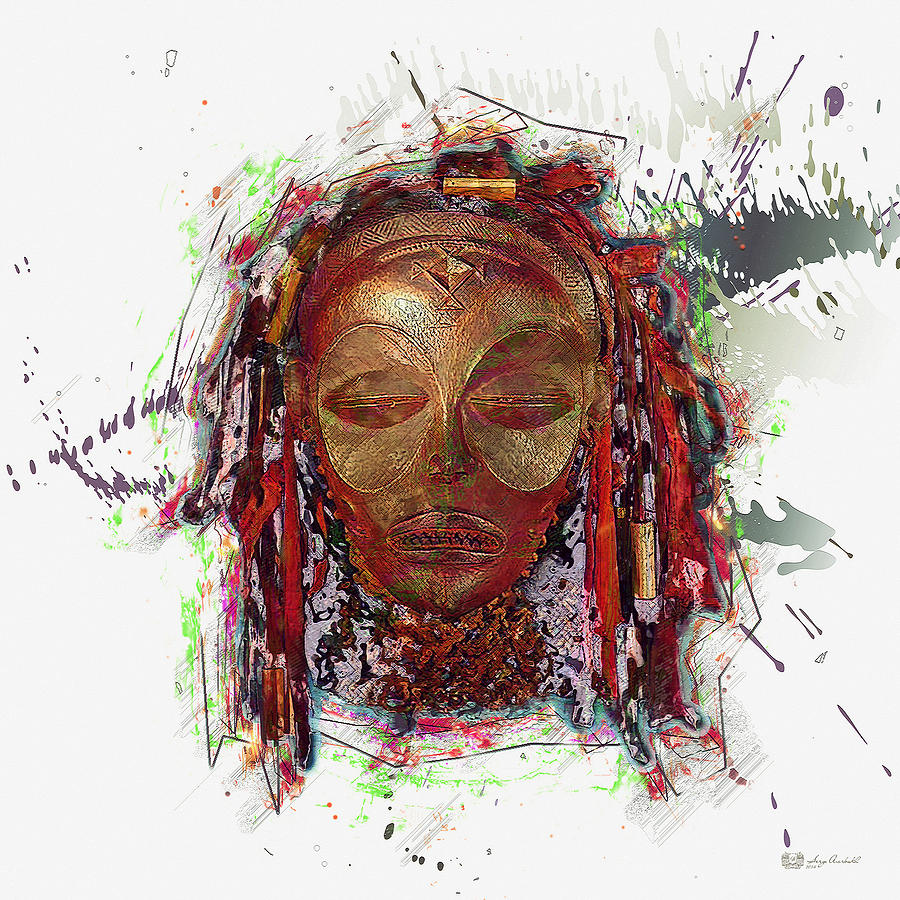
Makonde Mapiko - Lipiko Mask

by Serge Averbukh
Buy the Original Digital Art
Price
$3,500
Dimensions
48.000 x 48.000 inches
This original digital art is currently for sale. At the present time, originals are not offered for sale through the Serge Averbukh - Website secure checkout system. Please contact the artist directly to inquire about purchasing this original.
Click here to contact the artist.
Title
Makonde Mapiko - Lipiko Mask
Artist
Serge Averbukh
Medium
Digital Art - Digital Painting
Description
Introducing 'Treasures of Africa' Collection by Serge Averbukh, showcasing convergent media paintings of various historical as well as modern ethnic arts pieces belonging to indigenous peoples and tribes from all around the African continent. Here you will find framed and wrapped/stretched canvas fine art prints, featuring Makonde Mapiko - Lipiko Mask.
The Makonde are an ethnic group in southeast Tanzania and northern Mozambique. The Makonde developed their culture on the Mueda Plateau in Mozambique. At present they live throughout Tanzania and Mozambique and have a small presence in Kenya. The Makonde population in Tanzania was estimated in 2001 to be 1,140,000, and the 1997 census in Mozambique put the Makonde population in that country at 233,358, for a total estimate of 1,373,358. The Makonde successfully resisted predation by African, Arab, and European slavers. They did not fall under colonial power until the 1920s. During the 1960s the revolution which drove the Portuguese out of Mozambique was launched from the Makonde homeland of the Mueda Plateau. At one period this revolutionary movement known as 'Frelimo' derived a part of its financial support from the sale of Makonde carvings. The Makonde are best known for their wood carvings and their observances of puberty rites. They speak Makonde, also known as ChiMakonde, a Bantu language closely related to Yao. Many speak other languages such as English in Tanzania, Portuguese in Mozambique, and Swahili and Makua in both countries. The Makonde are traditionally a matrilineal society where children and inheritances belong to women, and husbands move into the village of their wives. Their traditional religion is an animistic form of ancestor worship and still continues, although Makonde of Tanzania are nominally Muslim and those of Mozambique are Catholic or Muslim. In Makonde rituals, when a girl becomes a woman, Muidini is the best dancer out of the group of girls undergoing the rituals. The Makonde traditionally carve household objects, figures and masks. After the 1930s, Makonde art has become part of the important contemporary art of Africa today.
Uploaded
September 28th, 2014
Statistics
Viewed 3,322 Times - Last Visitor from New York, NY on 04/24/2024 at 7:02 AM
Embed
Share
Sales Sheet
Comments
There are no comments for Makonde Mapiko - Lipiko Mask. Click here to post the first comment.























































